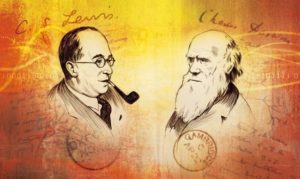Excerpts of The Magician’s Twin Book Now Available Online
In celebration of the upcoming 50th anniversary of C.S. Lewis’s death and the installation of a memorial to Lewis in the famous Poet’s Corner of Westminster Abbey, Discovery Institute Press is making available free excerpts from several chapters of the book The Magician’s Twin: C.S. Lewis on Science, Scientism, and Society edited by John G. West. Enjoy! Darwin in the Dock: C.S. Lewis’s Limited Acceptance of Common Descent Darwin in the Dock: C.S. Lewis’s Critique of Evolution and Evolutionism From C.S. Lewis, Four Arguments Friendly to a Universe by Design C.S. Lewis on Science as a Threat to Freedom A Regenerate Science? For the Approaching 50th Anniversary of C.S. Lewis’s Death, a Look at The Magician’s Twin


